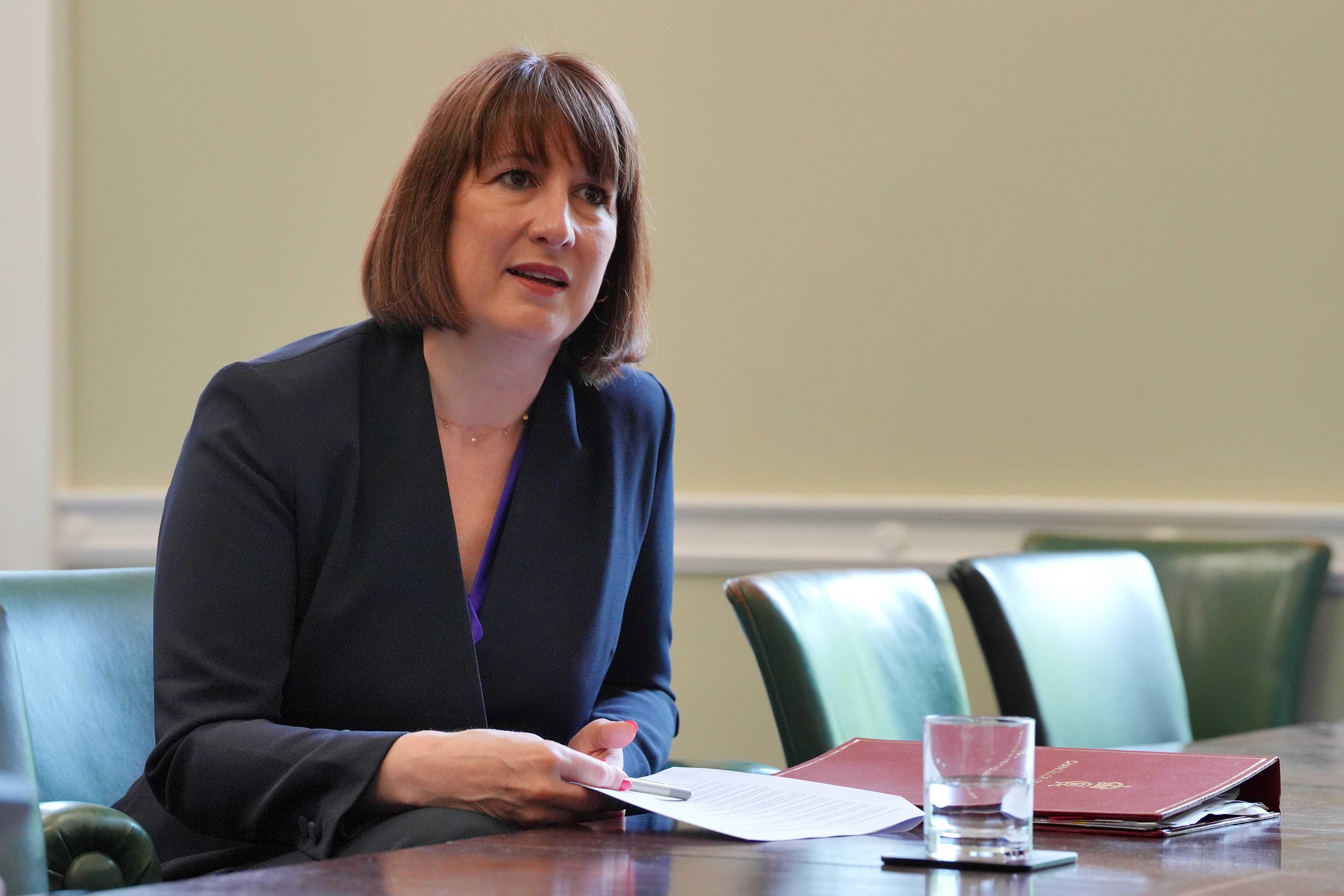As the economy stalls on Labour, what can Rachel Reeves do about it?
Against City expectations, the latest GDP figures show no growth for a second month in a row – but the chancellor can’t afford for her first Budget to be a gloomy affair, says James Moore


Not many people are inclined to feel much sympathy for Rachel Reeves at the moment – the cut to winter fuel payments could hardly have gone down worse – but she’s been dealt a dismal hand. And now the economy has stalled on her.
The latest official figures show that, after growing by 0.5 per cent in the three months to July, the economy has unexpectedly flatlined for a second consecutive month.
The City had pencilled growth of 0.2 per cent. Investec, which was a tad more optimistic in calling for 0.3, could not find a fellow forecaster going for a flat zero.
While the dominant services sector showed a modest uplift, returning growth of 0.1 per cent, production fell by 0.8 per cent and construction declined by 0.4 per cent.
The latter should pick up, as efforts to increase housebuilding gather steam and instill confidence among developers. But the decline of Britain’s makers should be of real concern. Manufacturing slumped to a record low share of 9.2 per cent of UK plc’s output during the second quarter of the year. That compares to 9.9 per cent pre-Covid, according to a Reuters calculation.
The sector – the biggest part of the “production” category – recorded a nasty 1 per cent fall in July. The motor industry was a major blackspot (3.5 per cent decline). However, seven of the 13 contributing sub-sectors ended the month in the red. This represented quite the reverse from the previous month’s 1.1 per cent rise.
Business surveys have hinted at better, so this may be temporary. But help is clearly needed.
Industrial strategies have been talked about dating back to Theresa May’s premiership, but there has been precious little in the way of action. That needs to change.
As for the services sector, it benefitted from a sports-related shot in the arm – which was hardly surprising. Health was also assisted by a reduction in strike days. A calmer spell in terms of industrial relations will help the economy across the board.
The role services have played in propping up UK plc overall will inevitably serve to underline the economic dominance of London; its engine. So much for levelling up.
But, does all this mean we are heading for another recession? Hold your horses.
While GDP was flat in June and July, the previous quarterly figure had shown growth – and the three-month figures are a much better guide than the monthly ones, which are prone to volatility. Remember, too, they could yet be upgraded (or downgraded); this is just a first estimate.
To qualify for the r-word, an economy has to record two consecutive three-month quarters in the red. We are a long way from that. However, we are even further away from the 2.5 per cent annual growth prime minister Keir Starmer has said he wants.
The Bank of England is unlikely to help with that. The economy’s relative weakness will increase the pressure on the rate-setting Monetary Policy Committee (MPC) to act. But optimism in the City over a cut this month has ebbed. It was pricing in the chances at roughly 25 per cent, at the time of writing. I’d put it lower. I suspect the MPC’s members will want to wait and see for a bit to gauge the impact of last month’s historic cut on inflation. Borrowers will have to wait until November for more relief, when I think the chances are much stronger.
Starmer or Reeves could, however, help themselves by dialling down their relentlessly grim rhetoric. Since coming into office, they’ve served up a main course of gloom with a side order of depression. Not without justification; the hole in the public finances identified by Reeves needs plugging – either by raising taxes, cutting spending or by conjuring up more growth (the hardest).
We are clearly in the midst of a “softening-up” exercise, which is something all governments faced with “tough choices” (I think that is a phrase we need to hear less of) are apt to do, regardless of their political colour. But when talk of trouble at mill is as all-consuming as it has been, it inevitably has an impact.
It is heard by consumers, who are apt to respond by holding off on spending. It is heard by the business community, which reacts by conserving cash rather than deploying it to fund growth. It is heard by international investors, who are liable to look elsewhere. Why would you sink your money into such an apparently unhappy place?
Reeves and Starmer would probably argue that they’re being open and honest with the public. A laudable aim, that. But they are nonetheless running the risk of talking us out of growth and into stagnation.
It’s time for a little sunshine.






Join our commenting forum
Join thought-provoking conversations, follow other Independent readers and see their replies
Comments